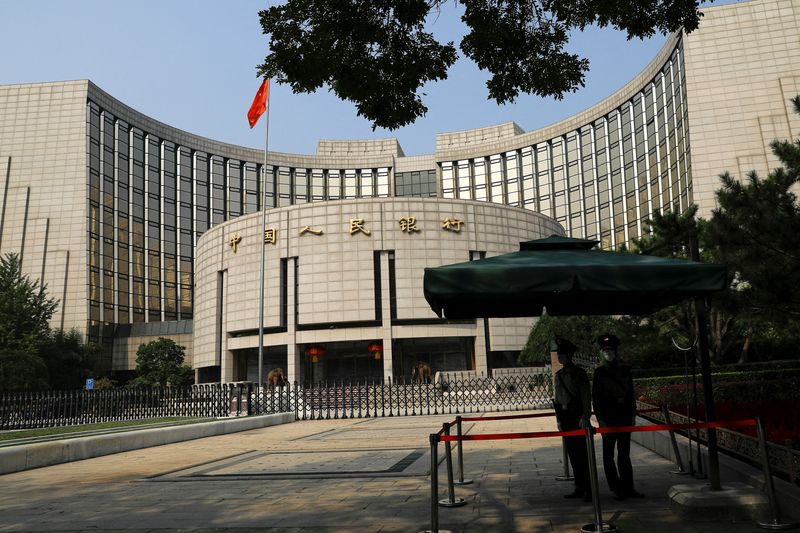BEIJING (Reuters) -Top Chinese government departments led by the central bank said on Monday that measures needed to be stepped up to strengthen financial support for private companies, including unblocking and sustaining of funding channels.
State agencies have in recent months unveiled a flurry of initiatives to support private businesses after authorities vowed to make the sector "bigger, better and stronger", in a bid to shore up an economic recovery.
Private firms, which account for 60% of China's gross domestic product and 80% of urban jobs, were hurt by three years of COVID curbs and a regulatory crackdown that targeted sectors from technology to private tutoring.
Efforts should be made to "unblock" financial channels such as loans, bonds and shares, said the People's Bank of China (PBOC) in a joint statement with seven other government departments and regulators.
Banking and financial institutions should set annual service targets for private enterprises, increase the weight of related businesses serving private enterprises in performance appraisal and gradually increase the proportion of loans to private enterprises, it said.
The tolerance for non-performing loans of private companies should also be "reasonably" increased while offering more support for first-time borrowers, according to the joint statement, which outlined 25 measures aimed at bolstering financial support for China's private economy.
Additionally, banks should meet the reasonable financing demand of privately owned property enterprises, it said. Lenders are encouraged to take the lead on supporting private firms that have market competitiveness but encounter temporary difficulties by coordinating with other creditors on issuing syndicated loans.
Mounting problems in the cash-squeezed and indebted property sector, which accounts for a quarter of China's economic activity, have sparked fears of a broader financial crisis and weigh heavily on economic growth and consumer confidence.
China has placed debt-laden Country Garden Holdings Co on a draft list of 50 developers eligible for a range of financing support, Bloomberg reported last week.
Beijing has been ramping up measures to support the world's second-largest economy, including a 1 trillion yuan ($139 billion) sovereign bond issuance plan and allowing local governments to frontload part of their 2024 bond quotas.
The PBOC has also implemented modest interest rate cuts and pumped more cash into the economy in recent months, pledging to sustain policy support.
In September, it cut banks' reserve requirement ratio for the second time this year to free up more funds for lending. Analysts expect another cut by year-end.
China should also expand private firms' bond financing and guide financial institutions to expand the bond financing scale of private enterprises, according to the statement.
China should back the listing, mergers and acquisitions, and reorganisation of private enterprises, including supporting qualified companies in going public overseas, it said.
Financial institutions should also maintain continuity in their services, even when some companies run into temporary difficulties.
"The principle is to meet the continued financing needs in advance and not to blindly stop, suppress, withdraw or cut off loans," according to the statement.

Government efforts to support the private sector included the establishment of a special bureau within the top state planners and tax and fee support for small businesses.
Fixed-asset investment by private firms fell 0.6% in January-September year-on-year, highlighting weak private sector confidence.($1 = 7.2111 Chinese yuan renminbi)